12 Serious Health Problems Overweight Dogs Face

Our furry friends bring us so much joy, but carrying extra pounds can seriously harm their health. Just like in humans, obesity in dogs leads to a host of medical issues that can shorten their lives and reduce their quality of life.
Understanding these risks might be the motivation you need to help your pudgy pup slim down and live a healthier, happier life.
1. Joint Pain And Arthritis

Extra weight puts enormous strain on your dog’s joints, wearing down cartilage faster than normal. This leads to painful arthritis, especially in the hips, knees, and shoulders.
You might notice your dog struggling to stand up, limping, or refusing to climb stairs. Many overweight dogs seem to age years beyond their actual age because joint pain limits their mobility so severely.
2. Breathing Difficulties
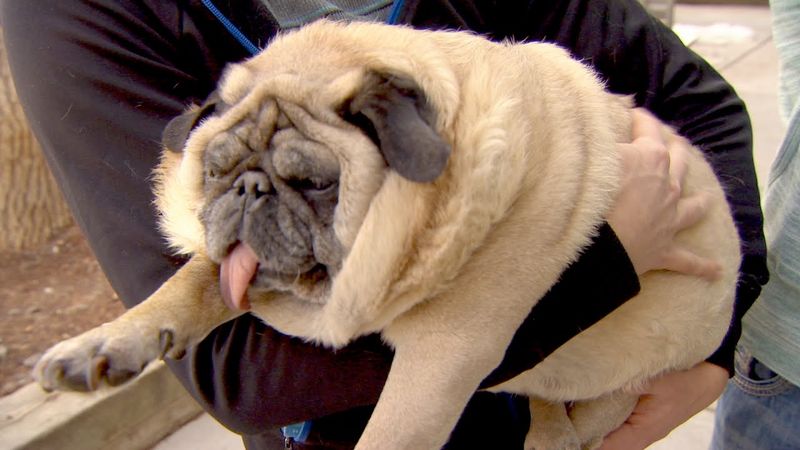
Fat deposits in the chest and abdomen make breathing harder for overweight dogs. Their lungs can’t expand fully, and their heart must work overtime to pump blood through excess tissue.
Even mild exercise can leave them panting heavily. Brachycephalic breeds like Bulldogs and Pugs suffer even more since they already have breathing challenges due to their flat faces.
3. Diabetes Mellitus

Canine diabetes develops when excess fat interferes with insulin function. Your dog’s body can’t properly process sugar, leading to dangerous blood glucose levels.
Warning signs include excessive thirst, frequent urination, and unexplained weight loss despite increased appetite. Once diagnosed, dogs typically need insulin injections for life and careful monitoring of diet and exercise.
4. Heart Disease
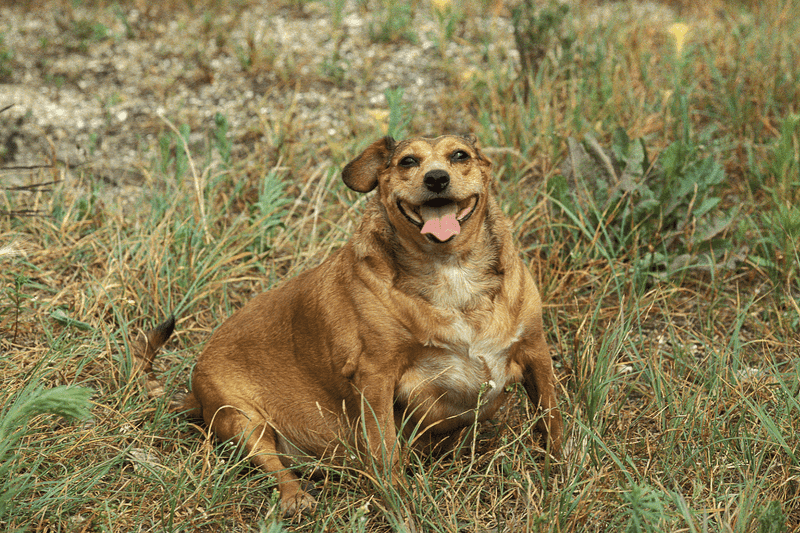
Carrying extra pounds forces a dog’s heart to work harder with each beat. Over time, this strain can lead to heart enlargement and congestive heart failure.
Fat also releases inflammatory substances that damage heart tissue. Symptoms might include coughing, fatigue, and difficulty breathing, especially at night or after activity. Heart problems often develop silently until they become serious.
5. Increased Cancer Risk

Scientists have discovered that fat tissue isn’t just inert storage—it actively produces hormones and inflammatory chemicals. These substances create an environment where cancer cells thrive.
Overweight dogs show higher rates of many cancer types. The connection is especially strong for mammary tumors in female dogs and transitional cell carcinoma of the bladder in all dogs.
6. Skin And Coat Problems

Excess fat creates skin folds where moisture gets trapped, creating perfect breeding grounds for yeast and bacteria. These infections cause itching, redness, and that distinctive yeasty smell.
Overweight dogs often struggle to groom themselves properly. Their skin produces more oils that can’t be distributed normally, leading to dandruff and a dull coat. Regular bathing becomes more important but also more challenging.
7. Decreased Immune Function

Fat cells release pro-inflammatory chemicals that keep the immune system in a constant state of low-grade activation. This chronic inflammation actually weakens immune responses when real threats appear.
Overweight dogs get sick more often and recover more slowly. Vaccines may not work as effectively, and wounds heal more slowly. Even routine surgeries carry higher risks for obese pets.
8. Urinary And Reproductive Issues
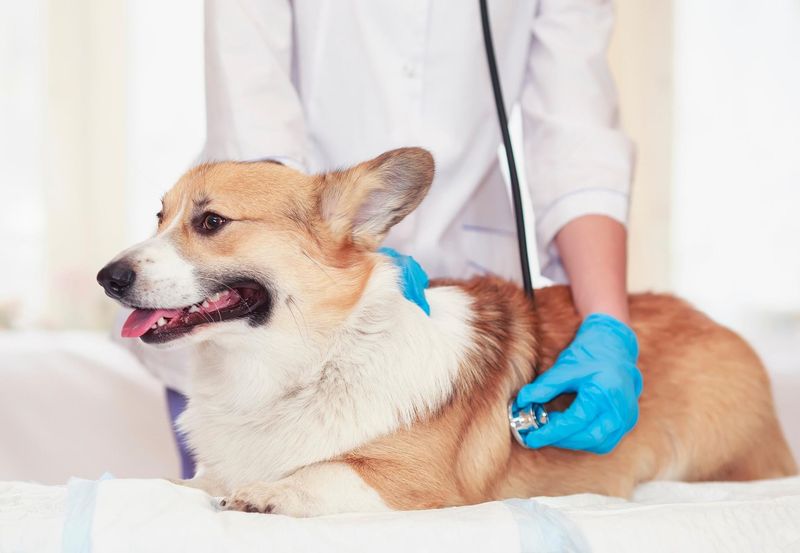
Female overweight dogs face higher rates of urinary incontinence and difficult births. The extra fat around reproductive organs interferes with normal function and hormone balance.
Males aren’t spared either. Obesity increases the risk of prostate problems and makes routine examinations more difficult. Both genders show higher rates of urinary tract infections and bladder stones when carrying excess weight.
9. Liver Disease
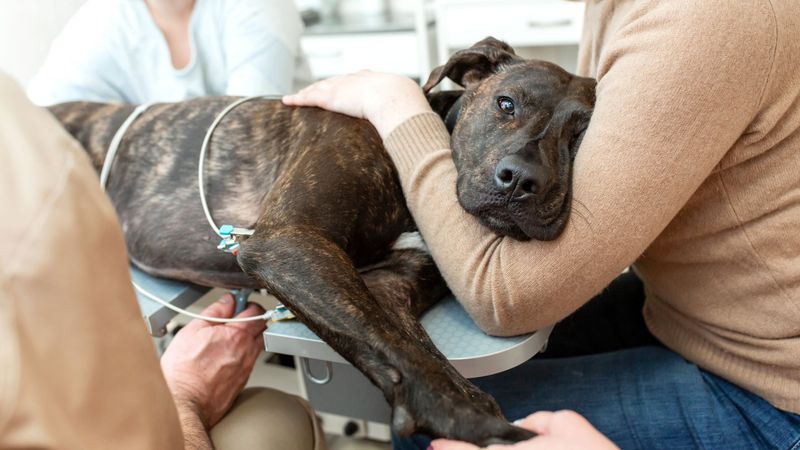
Fat accumulation within liver cells leads to a condition called hepatic lipidosis. The liver becomes infiltrated with fat and can’t perform its vital functions properly.
Your dog’s ability to filter toxins, process medications, and produce essential proteins becomes compromised. Symptoms might include increased thirst, vomiting, or a yellowish tint to the eyes or gums.
10. Heat Intolerance
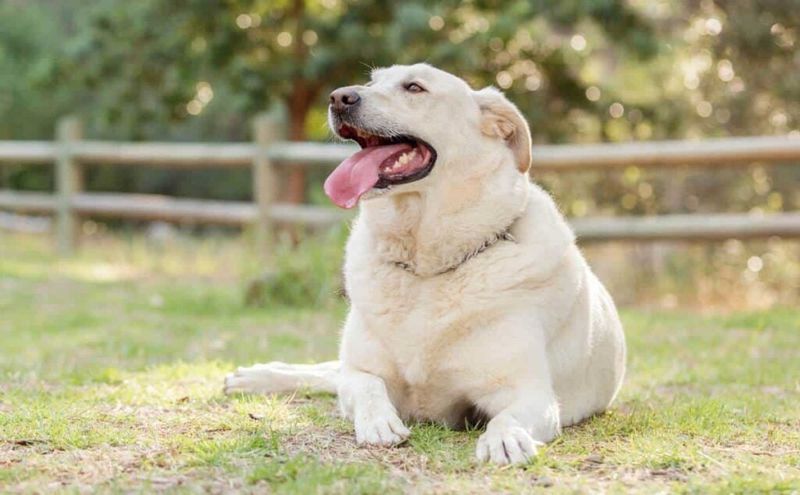
Fat acts as insulation, making it harder for overweight dogs to regulate body temperature. They overheat much faster than lean dogs, especially during warm weather or exercise.
Panting, their primary cooling mechanism, becomes less effective when they’re carrying extra pounds. This makes hot days dangerous and increases the risk of potentially fatal heat stroke even during moderate activity.
11. Anesthesia Complications

Excess fat makes anesthesia particularly dangerous for overweight dogs. Fat absorbs anesthetic drugs, making dosing unpredictable and recovery times longer.
Breathing complications occur more frequently during surgery because fat puts pressure on the diaphragm. Veterinarians often consider obese dogs high-risk surgical patients, sometimes recommending weight loss before elective procedures.
12. Shortened Lifespan
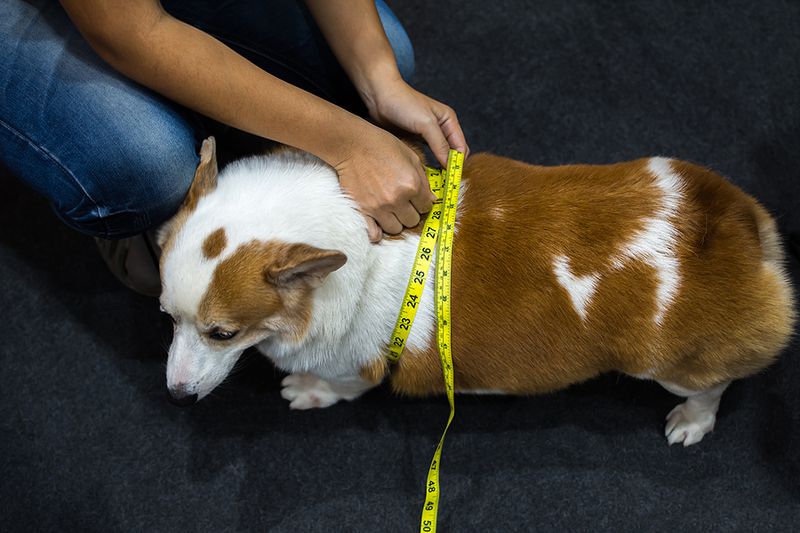
Research shows that overweight dogs live significantly shorter lives than their lean counterparts. Studies of Labrador Retrievers found that even moderately overweight dogs lived nearly two years less than their normal-weight littermates.
The combination of increased disease risk and reduced quality of life takes a heavy toll. The good news? Weight loss at any age can help reverse many risks and add healthy years to your dog’s life.






